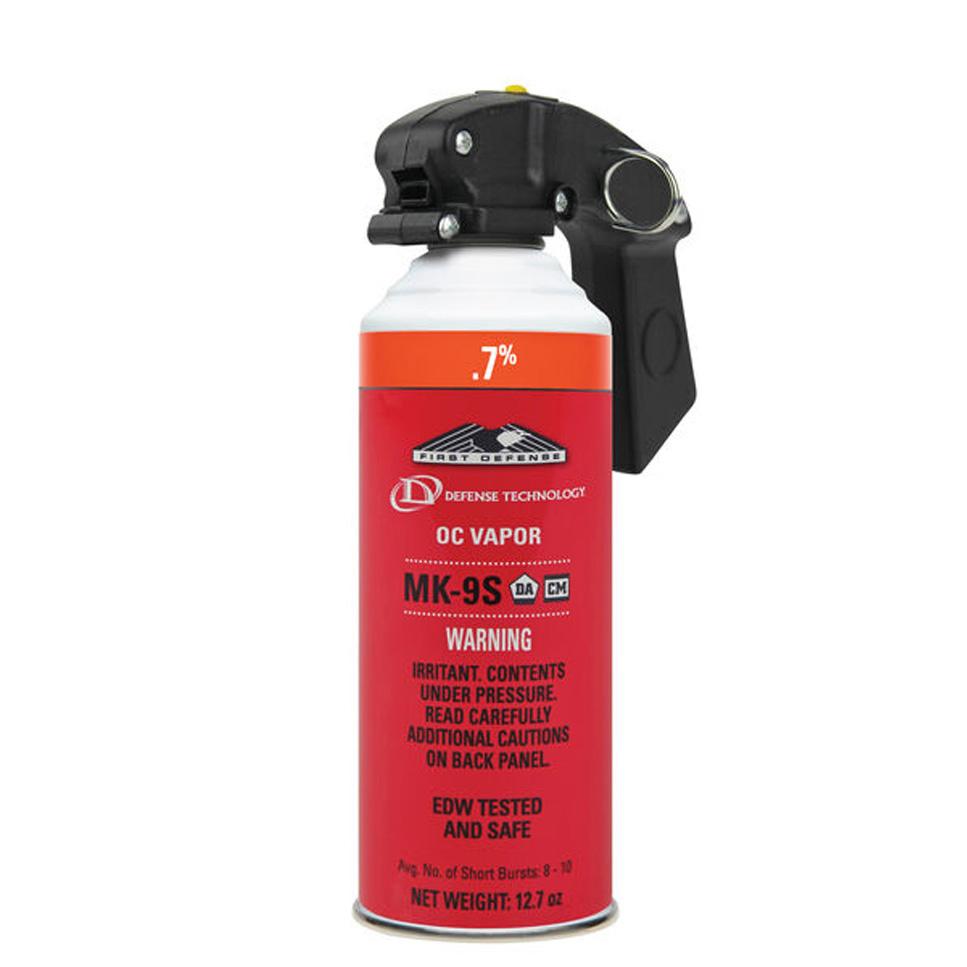Table of Contents
- Understanding the Impact of Humidity on Pepper Spray Effectiveness
- How Moisture Influences the Chemical Stability of Pepper Spray
- Storage Best Practices to Protect Pepper Spray from Humidity Damage
- Maximizing Shelf Life Through Optimal Environmental Conditions
- In Summary
Understanding the Impact of Humidity on Pepper Spray Effectiveness
The effectiveness of pepper spray can be significantly influenced by the surrounding humidity levels. In environments with high humidity, the spray particles tend to absorb moisture from the air, causing them to clump together and reduce their ability to disperse evenly. This results in a localized and less potent spray pattern, which can diminish the deterrent effect during critical moments. Conversely, in low humidity conditions, the spray remains more airborne and disperses more widely, increasing its coverage area and overall performance. It’s important to consider these factors when relying on pepper spray for personal safety, especially if you live in regions with fluctuating humidity levels.
Beyond immediate performance, humidity also plays a crucial role in the long-term shelf life of pepper spray canisters. Elevated moisture levels inside the container can lead to internal corrosion or compromise the chemical composition, causing the active ingredients to degrade prematurely. To maintain optimal potency, users should:
- Store the spray in a cool, dry place away from direct sunlight or heat sources.
- Avoid exposing the canister to extreme temperature or humidity changes.
- Regularly check expiration dates and replace expired units promptly.
How Moisture Influences the Chemical Stability of Pepper Spray
Moisture plays a critical role in determining the chemical stability of pepper spray formulations. When exposed to high humidity levels, the active capsaicinoid compounds found in pepper spray can undergo hydrolysis and oxidation reactions. These chemical changes reduce the potency of the spray, ultimately diminishing its effectiveness. Additionally, moisture can cause the propellant or inert carrier fluids within the canister to degrade, leading to inconsistent pressure levels, which may affect the spray pattern and range. In environments where the spray is stored in damp conditions, the canister’s inner lining may also suffer corrosion, further contributing to compromised stability and safety concerns.
Proper storage and packaging are essential to mitigate moisture’s negative impact. Manufacturers often employ moisture-resistant seals and desiccants inside the packaging to preserve the integrity of the solution. Users should be aware of key factors that influence chemical stability, such as:
- Storage Temperature: Cooler, dry environments slow down degradation reactions.
- Humidity Control: Avoid storing pepper spray in bathrooms or areas prone to condensation.
- Canister Integrity: Prevent punctures or leaks where moisture could infiltrate the contents.
Storage Best Practices to Protect Pepper Spray from Humidity Damage
To preserve the integrity and effectiveness of your pepper spray, it’s essential to store it in an environment that limits exposure to moisture. High humidity levels can cause the canister’s metal components to corrode, leading to potential leaks or malfunction during critical use. One effective approach is to keep your pepper spray in a cool, dry place away from bathrooms, kitchens, or outdoor areas where humidity tends to fluctuate. Additionally, using airtight containers or sealed plastic bags with desiccant packets can help absorb excess moisture and maintain optimal conditions.
When storing your pepper spray, consider these key tips for long-lasting performance:
- Choose low-humidity locations: Closets or drawers in climate-controlled rooms are preferable.
- Avoid temperature extremes: Excessive heat combined with humidity can further degrade propellants and active ingredients.
- Regularly inspect your canister: Check for rust, dents, or residue that may indicate moisture damage.
- Rotate stock: Use older pepper spray before newer cans to ensure freshness and reliability.
Maximizing Shelf Life Through Optimal Environmental Conditions
Proper storage conditions play a crucial role in extending the functional lifespan of your pepper spray. Maintaining the right environmental parameters, especially humidity levels, ensures the chemical integrity and pressurization remain stable over time. Excessive moisture can cause the canister’s components to corrode or degrade, leading to leaks or reduced spray efficacy. Conversely, extremely dry conditions might affect the propellant balance inside the canister. To protect your pepper spray, store it in a cool, dry place away from direct sunlight and avoid areas prone to dampness or high humidity fluctuations.
Following these simple guidelines can significantly impact the longevity and reliability of your pepper spray:
- Keep humidity levels between 30% and 50% to maintain optimal chemical stability.
- Avoid storing near bathrooms or kitchens where steam and moisture can accelerate corrosion.
- Utilize airtight containers or sealed pouches for additional protection when storing in humid climates.
- Regularly inspect your pepper spray for signs of rust, leakage, or discoloration to replace it timely.
In Summary
In conclusion, understanding how humidity impacts both the performance and shelf life of pepper spray is crucial for ensuring its reliability when you need it most. High humidity can cause the propellant to degrade faster, potentially reducing the spray’s effectiveness and shortening its overall lifespan. By storing your pepper spray in a cool, dry place and regularly checking expiration dates, you can maintain its optimal performance. Staying informed about these factors empowers you to be better prepared and confident in your personal safety measures. Remember, a well-maintained pepper spray is not just a tool-it’s a safeguard.Check Our Other Blogs
- StunGun – Your Trusted Source for Stun Guns, Laws, and Self-Defense Tips
- PepperSprayLaws – Your Trusted Resource for Pepper Spray Information
- StunGunLaws – Your Trusted Guide to Stun Gun Legality and Safety




